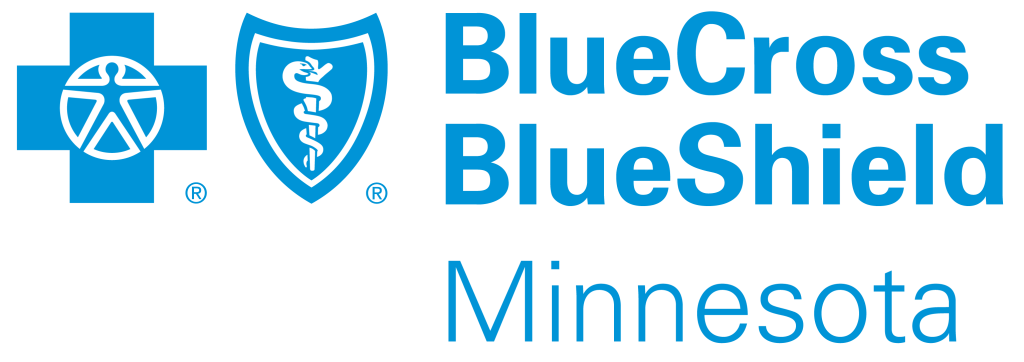Seven million. That’s the number of Americans who are living with Alzheimer’s disease, according to the Alzheimer’s Association. Although Alzheimer’s may have touched your own life — maybe a relative had it, maybe your neighbor moved into memory care, maybe you chat with friends about your own forgetfulness, worrying about what it could mean — it’s important to understand exactly what Alzheimer’s is and how it differs from other forms of dementia.
“Dementia is an umbrella term for loss of memory and other mental abilities that is severe enough to interfere with daily living,” says Jenna Fink, LSW, associate director of community services for the Alzheimer’s Association’s Minnesota-North Dakota Chapter.
Alzheimer’s disease is the most common type of dementia. It is associated with physical changes in the brain that form and cause the death of brain cells, leading to symptoms of the disease. Those include memory problems, changes in mood and trouble with communication, explains Dr. Dongming Cai, MD, Ph.D., professor of neurology at the University of Minnesota.
On the lookout for Alzheimer’s symptoms
How can you tell if everyday brain blips — forgetting where you put your keys, blanking on the name of your table mate at bridge, not knowing what you walked into a room for — are a sign of something more? Let’s look at some scenarios:
Forgetfulness happens frequently
“If you’re constantly looking for the right words in conversation or struggle with directions all the time, that’s more worrisome compared to when you forget a word once in a blue moon or get lost in an unfamiliar place when your GPS doesn’t work,” says Dr. Cai. It’s especially worrisome if forgetfulness also causes problems with day- to-day functioning, such as not remembering how to get to the grocery store.
Things you excelled at before, you struggle with now
We’re not talking about how you could play basketball in high school. Think about more cognitively challenging things. For instance, says Dr. Cai, maybe you’ve been preparing your tax return for decades, but this year you weren’t able to figure it out. Or maybe balancing your checkbook or determining the tip on a restaurant bill has always been easy, but it’s proven to be too difficult to even try now.

You have sticky notes all over the place
With Alzheimer’s, people often retain their long-term memories, sharing stories of childhood with ease. “It’s the short-term things that we tend to start to forget in Alzheimer’s,” says Fink. That can look like forgetting important dates or events, asking for the same information over and over, or relying heavily on memory aids, like sticky notes, around the house to help you remember basic things, such as names on a photo.
Did you know?

Women are disproportionately affected by Alzheimer’s disease.
SOURCE: ALZHEIMER’S ASSOCIATION
Your mood, personality and behavior are changing
Becoming more easily upset about situations or things that normally wouldn’t give you pause may be another warning sign, says Fink. You may hide things, be suspicious of others, imagine things that aren’t there, wander, or generally be upset or depressed. Any change in personality is a sign that something is going on, whether it’s Alzheimer’s or something else, such as a mental health problem like depression.
Prevention

Exercise, a healthy diet and keeping your mind active may help prevent Alzheimer’s disease.
SOURCE: ALZHEIMER’S ASSOCIATION
How to find help
One good place to start is the Alzheimer’s Association’s 24/7 Helpline at 1-800-272-3900. A person will answer any day or any time to provide help for those with dementia or their caregivers and loved ones. If you are concerned about cognitive changes you or a loved one are experiencing, start by opening up the conversation with a primary care provider who can properly evaluate you, advises Dr. Cai.
Keeping your brain sharp as you age
Your age is the biggest risk factor for Alzheimer’s, but it’s important to remember that Alzheimer’s is not inevitable. This disease doesn’t have to be a normal part of aging.
Healthy lifestyle habits go a long way toward protecting your brain, says Dr. Cai. In fact, research shows that participating in at least four of the five habits below help reduce the risk of Alzheimer’s by 60 percent:
• Moderate-to-vigorous-intensity exercise for 150 minutes per week: This can include brisk walking, jogging, water aerobics, biking, ballroom dancing and gardening.
• Not smoking: It’s never too late for older adults to improve their health by quitting tobacco. If you need help quitting, Blue Cross members can receive extra support. To reach the Blue Cross quitting tobacco and vape support line, call 1-888-662-2583 TTY 711 Monday through Thursday from 8:30 a.m. to 5:30 p.m. CT or Friday from 8 a.m. to 6 p.m.
• Limiting alcohol: Moderate drinking is considered no more than one drink per day for women and two for men.
• Following the MIND diet: This is a plant- based diet similar to the Mediterranean diet that focuses on brain-boosting foods, such as berries and leafy green vegetables.
• Keeping your mind active: Learning something new, participating in music, doing puzzles and socializing with friends all keep your brain engaged, says Dr. Cai. “Your brain is like a muscle. If you don’t work it out, you lose it,” she says.
A Word for Caregivers
If you’re caring for someone with Alzheimer’s disease, you are in good company. More than 16 million Americans act as caregivers for friends and family with dementias, according to the Centers for Disease Control and Prevention (CDC). The reality is, even though this time with your loved one is precious, it can also be emotionally and mentally draining, says Fink. “Caregiving is a 24/7 job,” she adds.
That’s why finding time to care for yourself is so important. Asking someone in your support network to come over for an hour while you go to a hair appointment or have coffee with a friend can help you get out and have a needed break. Looking into in- home services available in your area and budget can also help relieve some of the tasks of personal care, visiting and supervision, or skilled care.
Finding a support group can also be a really powerful way to spend time with others who are in a similar situation as yourself, says Fink. Educational programs provided through the Alzheimer’s Association can also help you learn more about the disease and caring for someone with it. Their 24/7 Helpline at 1-800-272-3900 can connect you with resources in your area. You can also find a wide range of helpful services and resources on the Blue Cross Caregiver Corner website at caregivercornermn.com.


